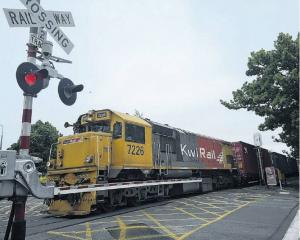
Problems with hospital builds could be like ‘‘unexploded bombs’’ through the country if Dunedin did not get a good result, inaugural Health New Zealand Te Whatu Ora (HNZ) chairman Rob Campbell said.
The debacle so far experienced by Dunedin could be repeated endlessly unless holistic, rigorous and transparent planning of health infrastructure held sway, he said.
Trust and confidence in the system had to be restored and this would not come cheap, he said.
The Dunedin project is under review amid budgeting pressures.

Mr Campbell was the guest speaker at a meeting in Dunedin run by The Opportunities Party yesterday as part of a national series on topical subjects.
‘‘The government must proceed and prioritise building the Dunedin hospital project on the basis established before its election,’’ he said.
‘‘It is vital to any sound future health infrastructure strategy that the integrity of major decisions is maintained across electoral cycles.
‘‘Building what they said they would build is absolutely critical to a sound future of health infrastructure nationally.’’
Delays added to costs, he said.
Mr Campbell lost his post last year after he criticised the National Party’s Three Waters policy.
Yesterday, he criticised politicians in general and particularly their failure to promote sound long-term planning.
‘‘None of the previous recent governments have shown any ability to understand the issues, let alone identify, far less to implement any useful response,’’ Mr Campbell said.
‘‘They have all been poor, which does open up the distinct possibility of doing a lot better.’’
Health services had been squeezed, neglected and mismanaged, he said.
‘‘Whatever particular political parties might wish to say, it will not be solved quickly. It will not be solved inexpensively.’’
He suggested a vastly different approach was required.
Mr Campbell said transparent planning could bring a lot more understanding about issues, priorities and timeframes.
‘‘The more holistic and inclusive the process and the more transparent the options and trade-offs are, the harder it will be for politicians to be fickle, rather than faithful.’’
The private sector and factors such as aged care and ACC needed to be taken into account.
Mr Campbell said gaps in past funding should be acknowledged.
At some point, a government would have to accept cost realities and set ‘‘a trusted floor from which to build a better, fairer system’’.
Governments needed to be prepared to define a clear funding course to completion of major projects and asset maintenance needs, he said.
‘‘In other words, prioritise confidence and trust — not cuts, restrictions and limitations.’’
Advertisement













